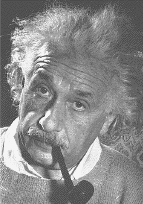The reasonable and the rational
Well, I looked up reasonable and rational in the dictionary, and they have basically the same definition. Even so, I think most people have a slightly different picture in their heads when they hear the two words. To me, the word reasonable reminds me of times when people have been trying to convince me of something, and all of their arguments are great, and completely REASONABLE, but I still don't really believe them. Sort of the, "Yeah... but..." syndrome. The word rational, on the other hand, reminds me of arguments that I have actually bought. As in, "Yeah, okay, that's RATIONAL. I'll accept that." In Frye it also says, "The reasonable is aware that every rational argument is a half truth, and that the other half should be included within a more tolerant and flexible compromise." I'll agree that the reasonable seems to be more specifically truth and facts, but I don't know if I can go for the rational being partial truth, unless it is taken to mean that the rational is not only made up of truth, but also of persuasion, emotion, and influencial outside factors. That would explain the need for tolerance and flexibility, because if the rational factors in more than just the plain facts, it would have to vary from person to person.
 RATIONAL
RATIONAL REASONABLE
REASONABLE









